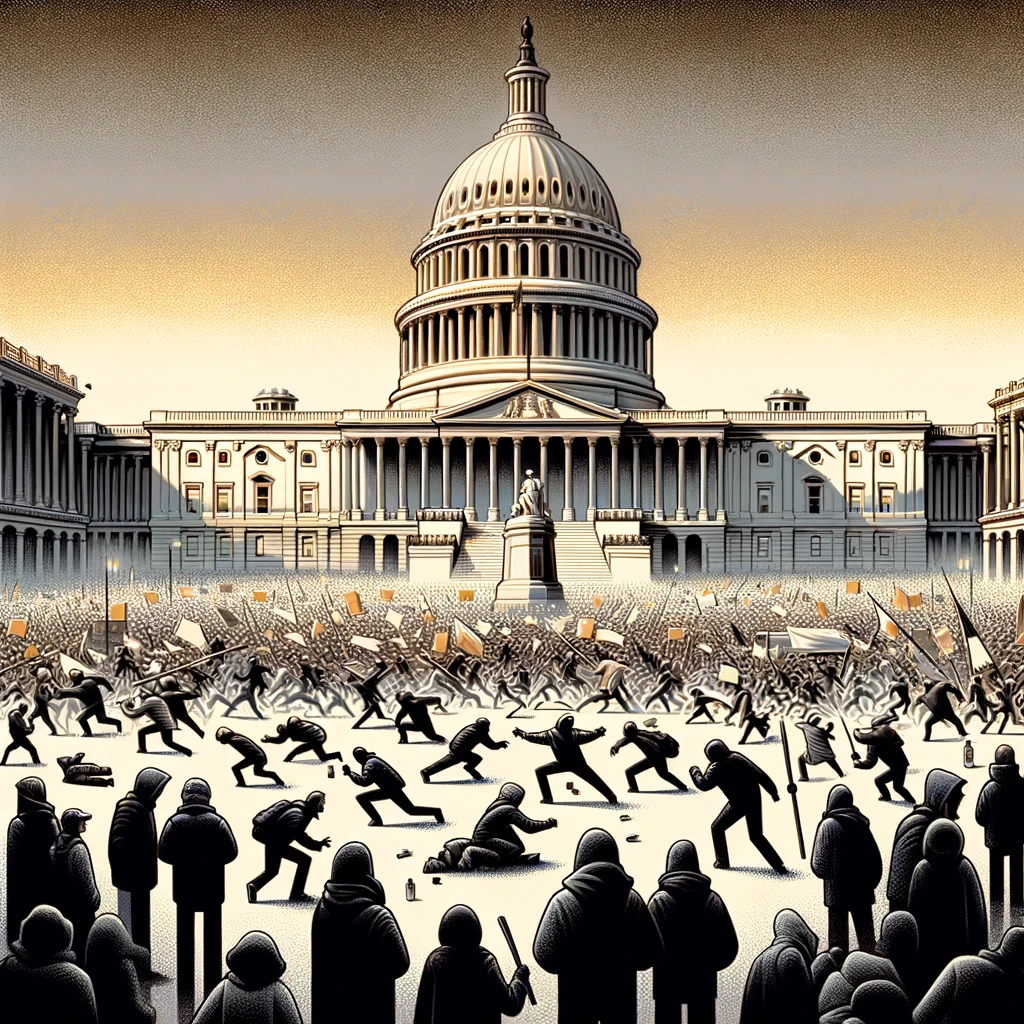
The January 6th Capitol riot stands as one of the most shocking events in recent American history, marking a day of violence and chaos that brought into sharp relief the stark divisions within the United States. As the nation revisits the events of that day, it becomes essential to understand the underlying causes, the unfolding of the riot itself, and the broader implications for democracy in America.
The day began with thousands of President Donald Trump’s supporters gathering for a rally near the White House, where they listened to speeches from the President and his allies. The rhetoric was charged and combative, with false claims of a stolen election and calls to fight to preserve the integrity of the electoral process. Fueled by these speeches, a large number of the attendees marched to the Capitol, where a joint session of Congress was in session to certify the Electoral College results of the 2020 presidential election.
As the crowd approached the Capitol, the mood shifted from a protest to a violent siege. Barriers were quickly overrun, and Capitol Police were overwhelmed by the numbers and aggression of the rioters. The invaders smashed windows, broke doors, and entered the Capitol, forcing lawmakers and staff to flee for safety and go into hiding. The scenes broadcasted live around the world were shocking: rioters looting offices, posing in the Senate chamber, and clashing violently with the outnumbered police. The mayhem resulted in extensive damage to the Capitol building and led to the deaths of five people, including a Capitol Police officer.
The immediate aftermath of the riots was a nationwide outcry. Political leaders across the spectrum condemned the violence and the direct assault on the democratic process. The event led to President Trump being impeached for a second time by the House of Representatives, charged with incitement of insurrection. The Senate later acquitted him, reflecting the deep political divisions that had partly contributed to the events of January 6th.
The broader implications of the January 6th riot are profound and ongoing. The attack has sparked a serious conversation about the state of American democracy, the power of misinformation, and the role of political leaders in shaping public perceptions and actions. Misinformation about the 2020 election, propagated by prominent figures and amplified by social media, created a fertile ground for radicalization and violence. This has raised critical concerns about the resilience of democratic institutions and the processes necessary to safeguard them.
The law enforcement response to the riot has also come under scrutiny. The apparent lack of preparedness for the riot, despite ample warnings and the clear potential for violence suggested by online activity before January 6th, has led to investigations and resignations among the Capitol Police’s top ranks. Questions about the disparity in law enforcement responses to different types of protests have ignited debates about racial and political biases within policing practices.
The longer-term consequences of the riot continue to unfold. Hundreds of rioters have been charged with a range of crimes, from trespassing to assaulting federal officers. The FBI continues to arrest individuals involved as they sift through thousands of hours of video footage and a vast amount of digital evidence. The prosecutions serve as a legal reckoning for the events but also as a focal point for further political controversy, with some viewing the legal actions as either too harsh or not severe enough.
Revisiting the January 6th riot also means grappling with the vulnerabilities in the American political system that it exposed. Efforts to bolster the security of the Capitol, ensure the integrity of elections, and combat misinformation are underway, but progress is slow and often contentious. The ripple effects of the riot are likely to influence American politics for years to come, affecting everything from election security measures to the political dynamics within and between parties.
In retrospect, the January 6th riot was not just a standalone event but a reflection of a deeper crisis in American democracy. It underscored the dangers of divisive politics and misinformation, revealing the extent to which democracy can be imperiled by internal threats. As America revisits and reflects on the events of that day, it faces the challenge of rebuilding trust in its democratic institutions and healing the divisions that have driven it apart. The legacy of January 6th is a stark reminder of the need for vigilance in protecting democracy, fostering civil discourse, and ensuring that the truth prevails over falsehood.
Illustration depicting the January 6th Capitol riot and its broader implications for American democracy. The scene captures a symbolic and chaotic gathering outside a stylized version of the Capitol, conveying the tension and emotional turmoil of the day. The somber color palette enhances the reflective mood of the artwork.